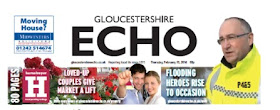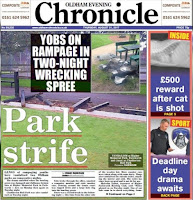Jeremy Corbyn in his Labour Party conference speech, as reported by the Independent: “One paper devoted 14 pages to attacking the Labour Party and the following day our vote went up nearly 10 per cent. Never have so many trees died in vain. The British people saw right through it. So this is a message to The Daily Mail’s editor - next time please make it 28 pages.”
Philip Collins in The Times [£]: "There is a new party in British politics. It has borrowed the historical label of the Labour Party. It has an entirely new membership and ideological zeal for the state to take back control. Some of the new politics is horrible. This was a conference at which the political editor of the BBC had to bring a bodyguard. She will not need such protection next week at the Conservative Party conference in Manchester. Are Labour members not ashamed of this fact? Mr Corbyn perfunctorily said he would not tolerate abuse but all his examples were abuse of the left, not abuse by the left. It was disingenuous to the point of being dishonest."
Index on Censorship reports: "Journalists are increasingly subjected to online harassment, but when the journalist is a woman misogynistic abuse quickly escalates into gender-based defamation and threats of sexual violence, according to a review of incidents reported to Index on Censorship’s Mapping Media Freedom project. In the latest case, political editor Laura Kuenssberg, who works for the BBC, was provided with a security detail while she covered the Labour party conference in Brighton. Kuenssberg had been targeted with sexist abuse by individuals who were upset by what they saw as her anti-Labour and anti-Jeremy Corbyn bias."
- Hannah Machlin, project manager at Index on Censorship’s Mapping Media Freedom project: “Sadly, Laura Kuenssberg’s experience is all too common across the 42 countries that Mapping Media Freedom monitors. Women are often targeted with threats of death and rape. As a society, we only hear about the most high-profile cases, which obscures the fact that this type of misogynistic intimidation is a widespread and pernicious obstacle to the performance of journalists’ professional duties.”
Press Gazette reports: "Press regulator Impress has largely banned three of its own board members and its chief executive from dealing with major Fleet Street news publishers because of the perception they would be biased against them. The move follows an internal review prompted by a dossier of evidence compiled by the News Media Association which was reported by The Sun in January 2017 and mainly concerned activity on Twitter. Impress chief executive Jonathan Heawood (pictured) and two members of its eight-strong board – journalist Emma Jones and professor Maire Messenger Davies – were all found to have published negative material about sections of the press."
The News Media Association, representing newspaper publishers, in a statement: "The News Media Association has written to the Press Recognition Panel asking how it is going to proceed after an internal review by IMPRESS found that chief executive Jonathan Heawood had breached internal standards against bringing the organisation into disrepute and this raised 'serious issues' about IMPRESS' compliance with the Royal Charter."
Jonathan Freedland in the Guardian: "The big beasts of the internet are a handy, perennial receptacle for blame. The fury and angst that, understandably, follows any act of terrifying violence can be reliably diverted from those whose prime task is the protection of the country’s citizens, namely the government, to the mammoth corporations who now control the bulk of the world’s information. Don’t get me wrong, those companies can and should do much more. But they are not the only ones with power seeking to shake off responsibility."
Nick Cohen on Twitter: "Love @gilescoren & @amolrajanBBC deeply. But presenting a BBC arts show? It's like me compering London fashion week."
GermanForeignOffice@GermanyDiplo on Twitter:"@Twitter is considering #280characters! Or as we say in Germany: 4 words #Rindfleischetikettierungsüberwachungsaufgabenübertragungsgesetz"
[£]=paywall









































